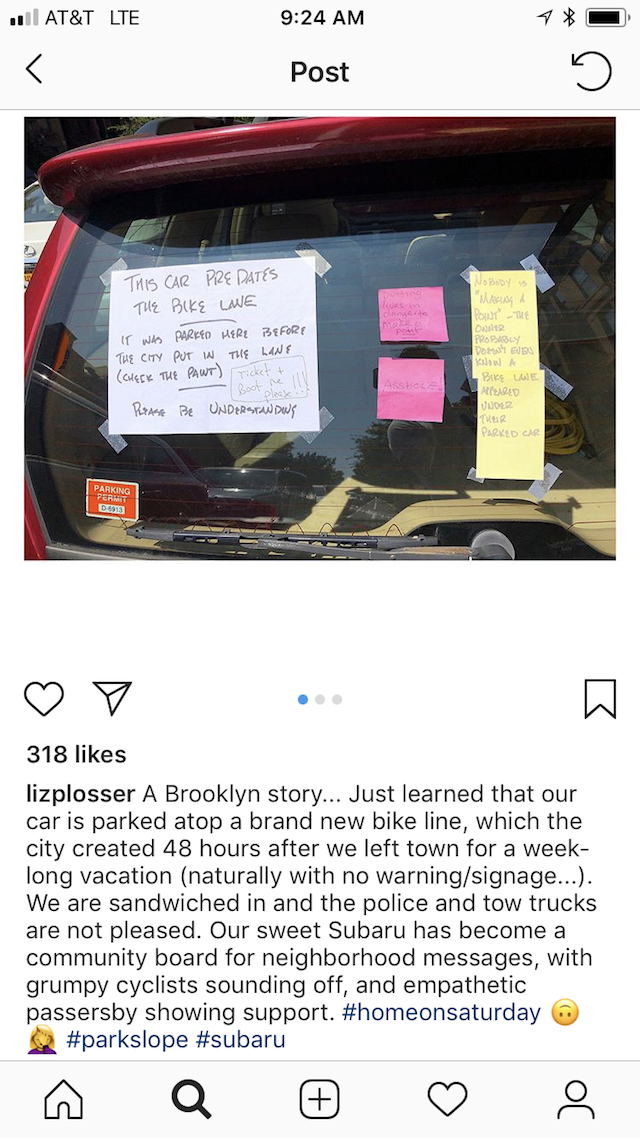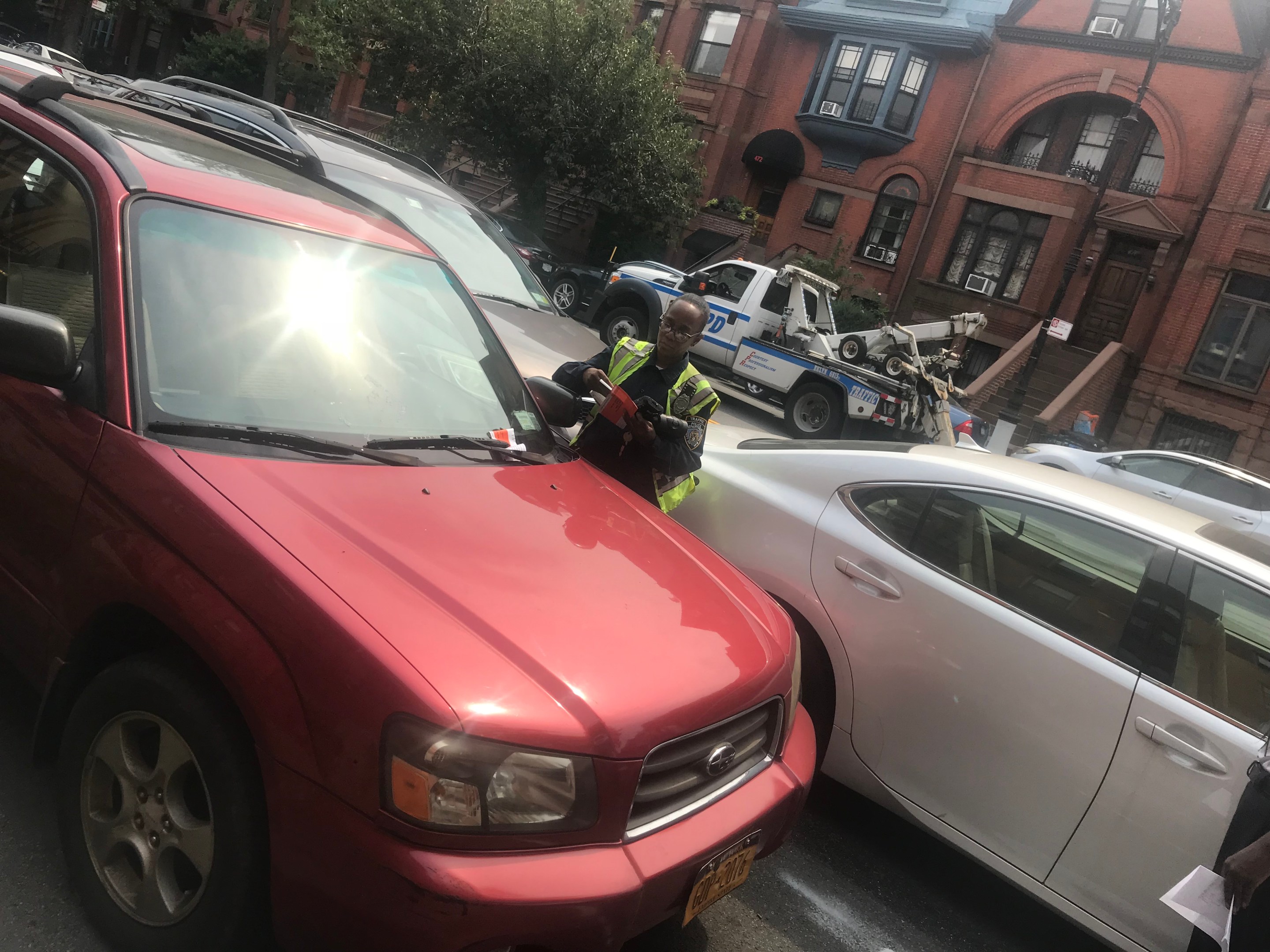I certainly tip my hat to Gothamist, which first reported on Tuesday that the much-reviled Ninth Street bike lane blocker had finally issued a weak apology on social media from her undisclosed vacation lair (UPDATE: She's in Durango, Colorado!).
But I returned my sweaty blue-dot Mets hat straight back onto my head after reading that the website had basically let driver Liz Plosser off the hook by allowing her to call the parking crisis "a misunderstanding."
It's not a misunderstanding at all — it's the exact understanding that city officials, local politicians and business owners have been allowing drivers to have forever: The curb is yours.
In short, Plosser, the editor-in-chief of Women’s Health, posted on Instagram (then deleted) that she parked her red Subaru on Ninth Street between Seventh and Eighth avenues one day before the city started painting the new bike lane there. Let's put aside the fact that there were already paper "no parking" signs up and down the block because Plosser admitted that she intended to leave her car on Ninth Street from Thursday night until her return this Saturday.

Her words, as reported by Gothamist:
A Brooklyn story. Just learned that our car is parked atop a brand new bike line, which the city created 48 hours after we left town for a week-long vacation (naturally with no warning/signage...). We are sandwiched in and the police and tow trucks are not pleased. Our sweet Subaru has become a community board for neighborhood messages, with grumpy cyclists sounding off, and empathetic passersby showing support.
It's not a "Brooklyn" story, though; it's a New York City story. Lost in the danger to cyclists represented by Plosser's car is a much more enraging concept: Car owners are permitted to use our public roadways for free on-street storage of their private vehicles at the expense of public uses such as better bus lanes, more bike lanes, streetscape improvements or even wider sidewalks (which Ninth Street could definitely use, by the way).
And Plosser's story also reveals another dirty secret about car owners in New York City: they clearly don't need their cars that much anyway because they are willing to leave them for a full week without so much as moving them. Plosser admitted she parked on Thursday and would not return until the next Saturday — meaning she intended to leave the car unmoved during Friday's street-cleaning hours twice. She said she was willing to eat both alternate-side-of-the-street tickets, which, at $45 a pop, are so cheap that they obviously encourage anti-social parking behavior. Indeed, $90 for nine days is a lot less expensive than a garage and far more convenient than finding a friend to move your "sweet Subaru" so your neighbors can get a clean street and cyclists can remain safe.
The curbside space is some of the most valuable public space we have, with our 4.4 million curbside parking spaces comprising, by my back-of-the-envelop math, more than 7 square miles of public space — more than six Central Parks.
Wouldn't it be nice to have six more Central Parks? Or to know that cyclists and pedestrians were safer? Or to just have entire bus lines get you to work quickly because there would be no cars blocking the curbside and forcing delivery trucks to double-park?
That's not the calculation made by driver advocates like Queens Council Member Jimmy Van Bramer when he capitulated to Sunnyside loudmouths who openly admitted that their parking spaces were more important than the safety of other users of Skillman and 43rd avenues.
The city has so thoroughly lost control of its curbside that double-parking is rampant, causing congestion and safety hazards. The Department of Finance made the problem worse a decade ago by letting delivery companies off the hook for millions in dollars in traffic summonses under the controversial Stipulated Fine Program. The industry is fighting proposed changes to the program, which is exactly how it goes in car-friendly New York. Even minor reductions in on-street parking — like the DOT plan to add loading zones along congested Austin Street in Queens — are opposed by local politicians doing the bidding of the car-free majority.
Fewer than half of the households in the city have a car — and in some parts of the city, it's well below 20 percent. It's time for our priorities to reflect that.
Gersh Kuntzman is Editor-in-Chief of Streetsblog. When he gets really angry, he writes the Cycle of Rage column. They're archived here.






